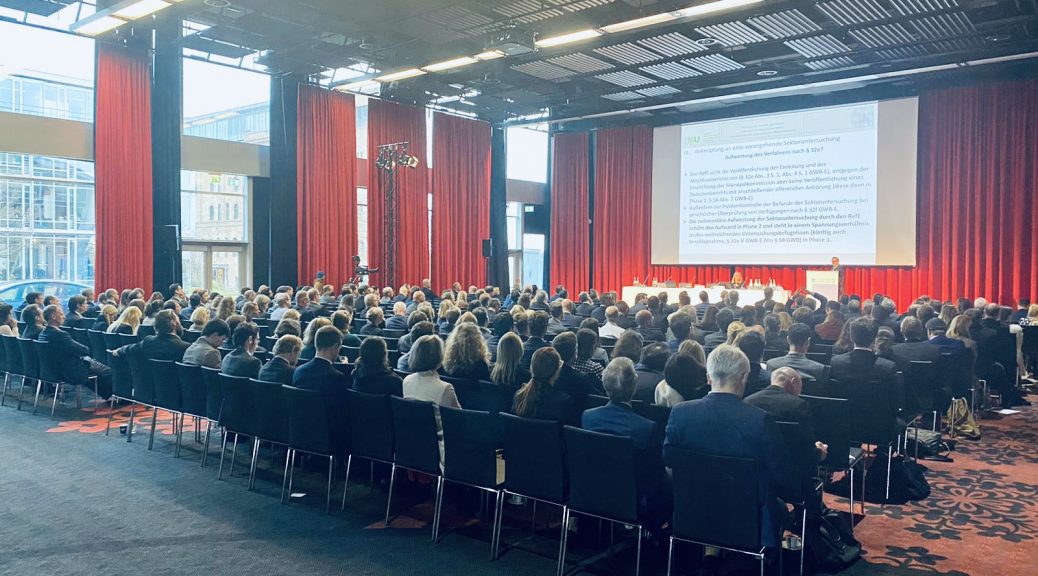
Conference Debriefing (34): Working (!) Session of the Studienvereinigung
On 8 December, the Studienvereinigung Kartellrecht, the legendary group of German-speaking competition lawyers, met for its working session in Bonn. This year, the traditional meet-and-greet with prominent figures from the nearby Federal Cartel Office and also from far away Berlin was dominated by the German reform projects. Dr. Sascha Dethof reports.
“Working session”, “there is work to be done today”, “this will be a real working session” – Chairman Ingo Brinker (Gleiss Lutz) made it clear in his introduction that he expected real effort at the Bonn working session of the Studienvereinigung Kartellrecht (which literally translates to “Study Association on Competition Law”). The escape routes doors were closed, the stage was set for the President. The interest was great after the Corona years, to see colleagues again for wine at lunch, to discuss the current topics of antitrust law: 400 registrations and 200 participants online, yes, the Studienvereinigung met hybrid. Congratulations for the impeccable organisation!
Mundt’s annual report
Traditionally, President Andreas Mundt started the conference with his speech, which he called the “annual balance sheet press conference”. As always, he led with verve through the extensive and increasingly broad œuvre of the authority. He began with cartel prosecution, saying that things were looking bright again (from his perspective). Most recently, there were no searches because of the effect of the better compliance programmes / the significantly reduced number of leniency applications the Corona era. So far, the authority has carried out 11 searches in 5 of its own cases and 6 cases for other national authorities and the Commission in 2022. The fines, so far, have been “meagre”, only € 20 million. However, cartel proceedings continue to have highest priority for Mundt, and accordingly, he said, it must be ensured that more leniency applications are received. He asked for “more drive” here. Possibilities of privileges for leniency applicants under civil law had recently been discussed between him and Prof. Christian Kersting at the CLF Forum in Düsseldorf on 7 November. In order to further increase the probability of detection, the BKartA continues to operate with screening and monitoring tools. Market data are thus to be evaluated for the detection of cartels. Not surprisingly, Mundt did not give any further details on the functioning of the tools.
In merger control, 800 cases were examined this year compared to 950 cases last year. So the number continues to decrease, as hoped for and expected by the authority. President Mundt also addressed the European Commission’s new practice on Art. 22 of the Merger Regulation: With this, the Commission could, in the case of “excessive interpretation”, practically take any case to itself. When asked how the BKartA would position itself in the future, the President avoided statements – probably also to not provoke calls from Brussels. The authority has the right, but not the duty, to make a request for referral to the Commission, he said. It is to be expected that the Bundeskartellamt will continue to handle the possibility restrictively.
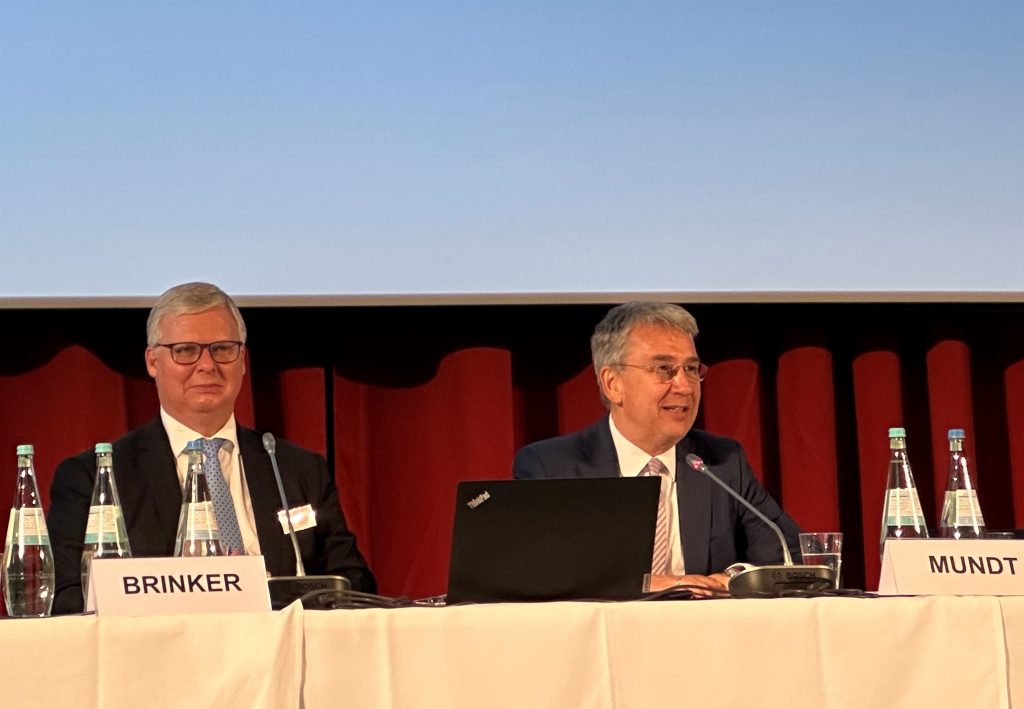
Digital Tour de Force
The competition register (Wettbewerbsregister) has now been in operation for a year and it works! So far there have been 5,000 notifications, 4,000 entries and 120,000 queries. Within the framework of the self-cleaning process, 11 applications for early deletion have been filed so far. The authority’s guidelines had proved their worth. One could sense a certain relief, because – according to President Mundt – for the first time the BKartA had issued guidelines before a corresponding decision practice.
He referred, not without pride, to the authority’s achievement in this “digital tour de force” and directly also called for a modernisation of communication by lawyers: “Don’t send us faxes! Use beBPo!” The numerous perplexed faces in the plenum (had he called a dog?) legitimated the call.
Regarding consumer protection, President Mundt mentioned the well-known wish of the authority to be given more enforcement powers. The current 11th amendment of the German competition act will probably not fulfil this wish, but possibly the 12th amendment will. As is well known, the Ministry has already announced a strengthening of consumer protection.
With regard to the digital economy, he discussed the decisions that the GAFAs are addressed by section 19a of the German competition act. These are now partly legally binding. Mr. Mundt defended himself against the statements of a “professor from Düsseldorf” that these proceedings were “no-brainers”. It was too obvious not clarified whom Mr Mundt was referring to. He took Amazon’s trip to the Federal Supreme Court on the matter lightly, saying that a clarification of the requirements by the Court would certainly be helpful (unless the Court also sees the matter as a no-brainer).
The crucial question regarding Section 19a is the future implementation in relation to the DMA. Mundt assumes a peaceful coexistence here, because in fact the DMA, so he said, is already taken into account in the application of Section 19a. He pointed out that the DMA is not as flexible with regard to new types of conduct as Section 19a.
With regard to the discussion on possibly diverging and parallel decisions, he referred to the most prominent example of booking.com. Even these decisions had not been contradictory, so he claimed, but the BKartA had only judged the matter more strictly. Incidentally, a referral from the Netherlands is currently pending before the ECJ on the assessment of a narrow best-price clause as a necessary ancillary agreement.
ESG and SIEC
Mr. Mundt also briefly addressed the issues of sustainability and ESG. He described the necessity of an antitrust exemption in agriculture in Art. 210a CMO as “questionable”; he is curious about the Commission’s guidelines. With regard to the discussion on high fuel prices and price increases in food retailing, he referred to the fastest sector inquiry to date and emphasised that the BKartA was not a price-setting authority. This would certainly not have been questioned by this audience, but is probably rather intended as a statement to the general public against the common opinion that the BKartA “has to do something about it”.
Questions on the meaning of the SIEC test (the BKartA still mostly refers to market dominance) were interrupted by hundreds of mobile phones ringing. No, no dawn raids during the meeting and desperate clients who could not reach their lawyers. A nationwide mock alert took place at this time. Actually, some participants were only warned by latecomers. Good for laughs but discriminatory!
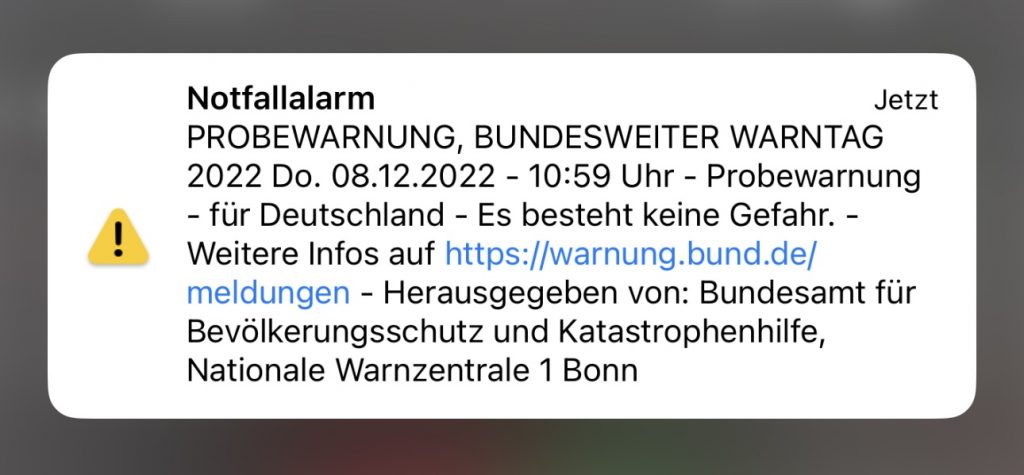
Skimming off profits according to Section 34 GWB-draft
The second block of topics concerned the future skimming off of profits according to the 11th amendment of the German competition act (abbreviated GWB). The co-presentation by Christian Steinle (Gleiss Lutz) and Florian Schmidt-Volkmar (Oppenländer) was moderated by Thorsten Mäger (HengelerMueller) with his well-known subtle humour.
So far, profits stemming from competition law infringements had not been skimmed off according to the existing section 34 GWB. The Ministry of Economics states:
“This instrument exists even now, but has never been used so far due to high hurdles.”
That is only almost true. The speakers themselves stated: Since 2005, the BKartA has not issued a single order, nor have the regional competition agencies in Germany, with the notable exception of the Hessian Landeskartellbehörde in 2015/2016 after a price abuse in the water supply sector in Hesse. One case is currently pending before the Federal Supreme Court and one before the Higher Regional Court of Frankfurt. Andreas Mundt had already spoken of Section 34 GWB in its current version being “dead law”, hurdles being too high. Jörg Nothdurft of the Bundeskartellamt contributed that the agency had once suffered a friendly visit by the Federal Court of Auditors. The competition agency had to justify itself as to why it did not make use of the possibility to fleece the companies even more according to section 34 GWB by skimming off illegal advantage. Unfortunately, he did not explain whether the BKartA properly maintains checklists in its own compliance documentation on the event of such “visits”.
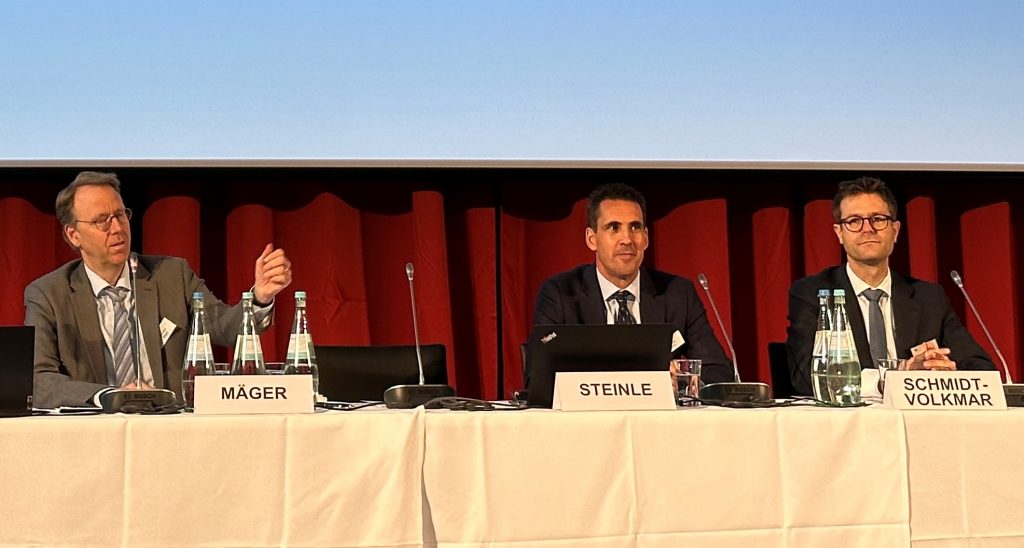
The 1% presumption
Now the legislator has big plans: The fault requirement is to be removed. In addition, in future, a presumption will apply that a company with a proven antitrust violation has obtained an advantage amounting to 1% of its domestic turnover with the product or service that is related to the antitrust violation. Andreas Mundt had called this presumption “pragmatic”.
Although the presumption can be rebutted, the speakers criticised that rebuttal is impossible for a healthy company, as it is ruled out if the company has also made a profit with other products. Steinle criticised that economic expert battles over decades instruments cannot be used here. The legislator has obviously recognised that the BKartA will not be able to cope with the expected expert opinions with existing capacities.
For a revival of the leniency programme, the interesting proposal was made to also exempt the leniency applicant from the benefit levy. It remains to be seen whether this will be taken up.
The speakers also criticised that the demarcation in the draft law that the 1% presumption only applies to competition law violations and not in the area of cartel damages, for example, might not work. This is because the pro rata profit can be taken into account within the scope of the damage assessment.
It remains to be seen whether the judges, who are currently looking for a basis for estimating cartel damages in accordance with section 287 of the German Code of Civil Procedure in the maze of conflicting economic opinions, will make use of this rule. Thus, one also heard the following quote during the talks:
“1% is not bad, for me as a lawyer, economics is always so complicated.”
Professor Christian Kersting then also pleaded in a speech for the presumption to be applied in cartel damages as well. It could hardly be that the state allowed itself a presumption but withheld it from the victims. Jörg Nothdurft pointed out that the BKartA had not advocated this change in the law. A look into the crystal ball gives hope to future cartelists that they will “only” suffer a fine.
In the case of disruption of competition… Section 32f GWB-draft
Moderated by Daniela Seeliger (Linklaters), the finals were heralded by Thorsten Käseberg, Head of the Competition Policy Division at the Ministry for Economic Affairs and Climate Action. He first thanked the Studienvereinigung for its statement on the GWB amendment. On the further timetable: The amendment would be discussed in the government cabinet on 21 December and then “promptly” in the parliamentary process; a conclusion of the legislative procedure was possible in March/April.
Käseberg explained the new mechanism of the draft Section 32f GWB. In the future, the authority is to be given powers of intervention following a sector inquiry, i.e. the BKartA is to be able to order concrete measures to remedy significant distortions of competition that have been identified. For the sake of legal certainty, Section 32 (5) of the draft GWB defines what constitutes a “disturbance of competition”. Clear procedural time limits are specified for the new powers: A maximum of 18 months is envisaged for the sector inquiry and the associated surveys of the participants in the affected markets as well as the data collection and analyses. The subsequent possible phase of ordering measures is also to last a maximum of 18 months. The measures extend to the possibility of unbundling companies. Mr. Käseberg, however, objected to calling this a “paradigm shift”.
The President of the Bundeskartellamt, Mr Mundt, had promised in his presentation earlier that the authority would use the instruments with the greatest respect. He did not want to reveal which markets the BKartA had in mind, even when asked. However, it was not certain that the BKartA was thinking of the same markets as the politicians. It could be about markets that were consolidated under the radar of merger control regulations.
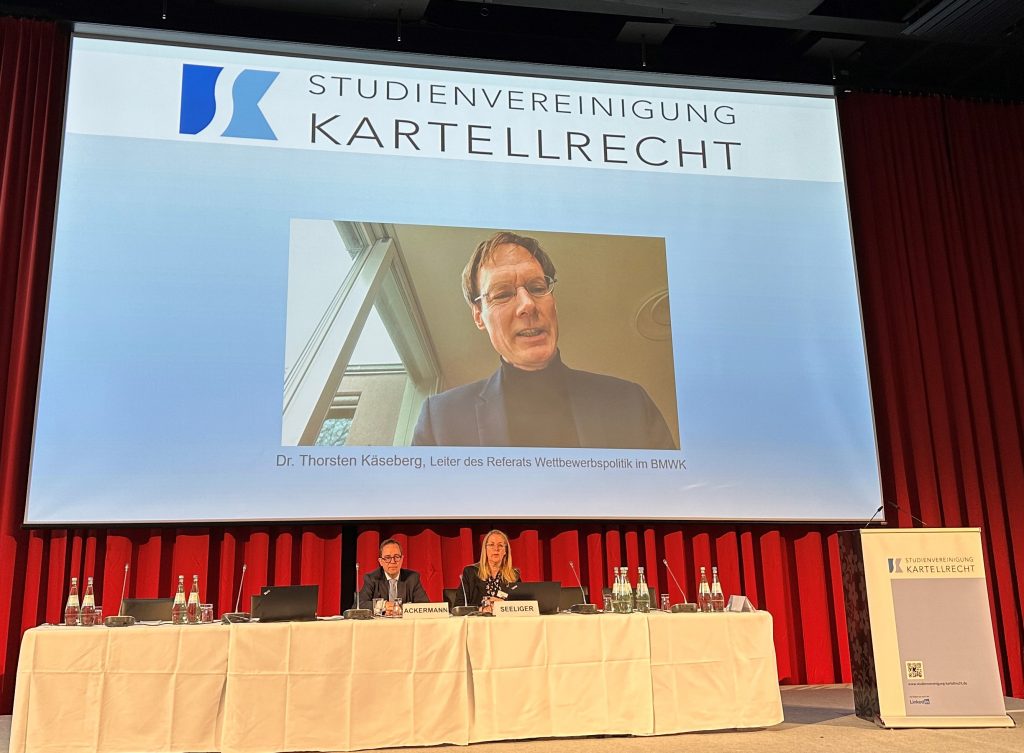
Conclusions with Ackermann
After the “Report from Berlin”, Professor Thomas Ackermann (LMU Munich) took up the topic. And yes, a murmur in the round, he used slides. And yes, another murmur, the draft – in his opinion – was not yet well drafted. Under the title “The general competition clause in Section 32f GWB-draft”, Mr Ackermann went into depth. Union and constitutional framework conditions to start with, today was a working session, it should be remembered.
On the facts of the case, he noted that the disruption of competition as a prerequisite for intervention was still unclear. The list of target criteria in Section 32f (5) GWB-draft was often ambivalent with regard to competition. He suggested that a disruption of competition should not be interpreted more broadly than the SIEC test. With regard to structural remedies, he noted that in the case of unbundling, full compensation would be required if the purchase price achieved under duress was not sufficient. Behavioural measures posed particular problems, for example, unlike Section 32 GWB, Section 32f (3) draft GWB lacked an infringement as a natural connecting factor. Therefore, the suitability of a prohibition of conduct was often questionable. Afterwards, there was a discussion on the topic, which the author unfortunately could not attend.
Overall, the meeting in the Kameha Hotel was again a successful event. In accordance with the chairperson’s instructions, it was all about work, but there was also an opportunity for exchange during the breaks. The event gave “a nice pre-Christmas feeling”, to quote Andreas Mundt once again.
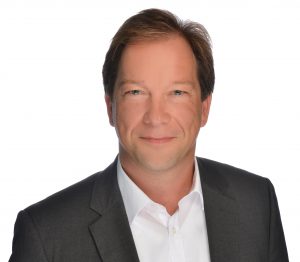
Dr. Sascha Dethof is a lawyer and partner at Fieldfisher in Düsseldorf.
PS: Have you taken your chances with the quiz in our D’Kart Advent Calendar yet? We take you on a tour to 24 antitrust locations from around the world.
One thought on “Conference Debriefing (34): Working (!) Session of the Studienvereinigung”
Thank you for such excellent debriefing.